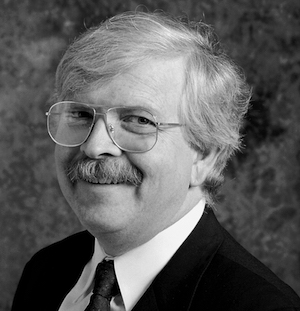Tom Givnish
Research Interests – Ecology, evolution, systematics, and historical biogeography of plants on oceanic islands (e.g., Hawaiian lobeliads) and tropical mountains and tepuis (e.g., Bromeliaceae, Rapateaceae). Phylogenomics and resolution of deep branches in monocots, with special reference to Poales, Liliales, and Orchidaceae; interconnections among adaptive radiation, geographic spread, and net rates of species diversification in these and other groups. Ecology of plant speciation. Population genetics; spatial extant of gene flow vis-a-vis speciation at small spatial scales. Optimal plant strategies for energy capture and implications for species distributions and variation in community structure along ecological gradients. Physiological, morphological, and phenological adaptations of photosynthesis to light regime in Hawaiian lobeliads and southern Appalachian trees. Determinants of local plant extinctions in Hawaii and Wisconsin over the past 50 years. Conservation biology, climate change. Roles of stem allocation and hydraulic constraints in setting maximum tree height. Ecology of prairies, temperate oak savannas, and deciduous forest understories. Field experience: Australia, Brazil, Canada, Cook Islands, Costa Rica, Ecuador, Guyana, Hawaiian Islands, Malaysia (Sabah, Borneo), New Zealand, Peru, Scandinavia, Society Islands, South Africa, continental USA, Venezuela. Teaching Interests – Plant ecology and evolutionary biology; Vegetation of Wisconsin (synthesis of functional, community, phylogenetic, and biogeographic approaches); major’s ecology; population genetics; plant community ecology; geology, ecology, Polynesian migrations, and ethnobotany in the south Pacific; Hawaiian ecology and evolutionary biology; Venezuelan ecology • My goal is to inspire students with a sense of wonder by having them confront patterns in the natural world, discuss and develop theories to account for these patterns, and then test these models via experiments and comparative studies. I have led or co-led field-centered capstone courses in Hawaii, Samoa, Venezuela, the southern Appalachians, and southern California, as well as eight field trips as part of Vegetation of Wisconsin each fall. Honors – NSF Graduate Fellow, 1973; Danforth Graduate Fellow, 1973; Elected Fellow of the Linnean Society of London, 1998; Elected Fellow of the American Association for the Advancement of Science, 2003. American Society of Plant Taxonomists Service – Finance Committee, 2014-present. University of Wisconsin-Madison Service – Hilldale Undergraduate Research Awards (Chair, Biological Division) 1991-2004; Organization for Tropical Studies representative, 1994-2008; Recreational Sports Board (chair), 2005-2011; Faculty Rights and Responsibilities (chair), 2011-2014; Provost’s Committee on Faculty Misconduct, 2014-present Graduate & Undergraduate Student Education: Mentor to 16 Doctoral students with completed degrees, with an additional 4 in progress; 10 M.S. students with completed degrees; 14 undergraduate honor’s students with completed degrees; and 6 post-doctoral research associates. Chief Goals if Elected: (1) Work with the AJB editor and other BSA officers to elevate the impact of AJB; (2) increase the profile of BSA re plant conservation and national investment in scientific research; and (3) initiate a competition for symposia proposed by graduate students. |
 Thomas J. Givnish – Henry Allan Gleason Professor, Botany, University of Wisconsin-Madison (2003-present). Lecturer, Assistant and Associate Professor, Organismic and Evolutionary Biology, Harvard (1976-1985). Visiting Professor of Botany, University of Hawaii at Mānoa (1999-2003); Visiting Fellow, Research School of Biological Sciences, Australian National University, Canberra (2004-2005). B.A. (Mathematics summa cum laude) Princeton; M.S. (Biology) and Ph.D. (Biology), Princeton.
Thomas J. Givnish – Henry Allan Gleason Professor, Botany, University of Wisconsin-Madison (2003-present). Lecturer, Assistant and Associate Professor, Organismic and Evolutionary Biology, Harvard (1976-1985). Visiting Professor of Botany, University of Hawaii at Mānoa (1999-2003); Visiting Fellow, Research School of Biological Sciences, Australian National University, Canberra (2004-2005). B.A. (Mathematics summa cum laude) Princeton; M.S. (Biology) and Ph.D. (Biology), Princeton.